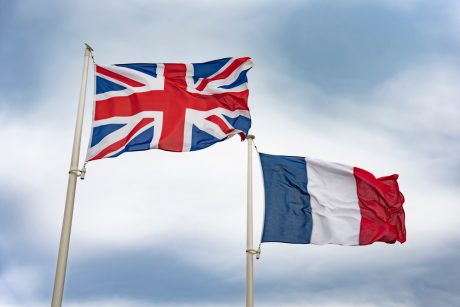Vive la déférence? A recent decision by the English Commercial Court may mark a line in the sand for how far the court will go in its approach to granting anti-suit relief in relation to arbitration agreements seated outside the jurisdiction.
In this article, Daniel Wilmot, Louis Peacock-Young and Pardis Jahanfar consider the decision in SQD v QYP [2023] EWHC 2145 (Comm) (“SQD”).
The judgment is notable for two reasons. First, for building upon the Supreme Court’s decision in Ust-Kamenogorsk Hydropower Plant JSC v. AES Ust-Kamenogorsk Hydropower Plant LLP (“AES”) (see further below) regarding whether such relief is available under section 44 of the Arbitration Act and/or under section 37 of the Senior Courts Act. Secondly, because it addresses a novel situation where the English court was asked to provide relief in support of a foreign-seated arbitration agreement (in this case, seated in France).
Like many members of the legal sector at this time of year, the judgment inhabits a French domain. It takes into account how the courts of that jurisdiction would respond to a request for anti-suit relief if it were made there rather than in England and concludes that it would be inappropriate for the English court to grant the relief sought.
Update: note that as of 11 October 2023, this decision has been superseded by the judgment in Deutsche Bank AG v Ruschemalliance LLC [2023] EWCA Civ 1144.
Background
The claimant to the English court proceedings (“SQD”) and the defendant to those proceedings (“QYP”) had entered into a contract for the provision of certain services. That contract was governed by English law and provided that certain disputes arising would be resolved by way of ICC rules arbitration seated in Paris, France.
A dispute arose, and QYP commenced proceedings before the courts in its own country (not disclosed in the judgment). It said it did so for various reasons but relevantly acknowledged the arbitration agreement’s existence within the contract. In response, SQD commenced ICC arbitration, seeking (among other things) declaratory relief as to the validity and enforceability of the arbitration agreement. It also sought orders requiring QYP to discontinue the proceedings commenced before its national courts and restraining it from enforcing any resulting judgments.
SQD also promptly applied to the English courts for interim anti-suit and anti-enforcement injunctions against QYP to similar effect. The request for interim relief was to ‘hold the ring’ until the tribunal in the ICC arbitration commenced by SQD was constituted and could issue any further relief.
The application for such injunctive relief was made under section 44(2) of the Arbitration Act 1996 (“AA”), alternatively, section 37(1) of the Senior Courts Act 1981 (“SCA”). In handing down his judgment, Mr Justice Bright considered (among other issues) the following key questions:
- Which of sections 44(2) AA and 37(1) SCA conferred the power to grant the injunctions sought?
- Whether any power to grant such injunctions exists, and if so, whether it should be exercised where the relief is sought in respect of a foreign-seated (in this case, Paris) arbitration?
This article focuses on these two key questions and comments on the possible implications arising.
Section 44(2) AA or section 37(1) SCA? AES recast?
In considering this first question, the judge held it “inescapable” that SQD’s application could only be brought under section 37(1) SCA in light of the UK Supreme Court’s ruling in AES and Lord Mance’s judgment in that case. Relevantly, Lord Mance concluded that “the reference in [section 44(2) AA] was not intended to exclude the court’s general power to act under [section 37(1) SCA] in circumstances outside the scope of [section 44(2) AA] or to duplicate part of the general power contained in [section 37(1) SCA]”.
Arguably AES is a judgment influenced by its underlying facts. In that case, the applicant for injunctive relief had no intention of commencing arbitration; it merely wanted to restrain the respondent from pursuing court proceedings in breach of the relevant (London-seated) arbitration agreement. The UK Supreme Court accepted that this took the matter outside section 44 AA, given its powers conferred on the English courts expressly are “for the purposes of and in relation to arbitral proceedings”. A complementary argument was advanced that section 44 AA (as part of a “complete… set of rules for the determination of jurisdictional issues [in the Arbitration Act]”) in effect superseded or circumscribed the operation of the general power under section 37(1) SCA in the specific context of relief sought in support of arbitration. Had that point been accepted, the result would likely be to allow the respondent to continue breaching the arbitration agreement.
There was, therefore, something of an imperative for the UK Supreme Court to preserve the existence and full operation of the power under section 37(1) SCA in relation to arbitration agreements. It duly did so and ruled that the lower court had been correct in making the orders that it did on the basis of exercising its powers under section 37(1) SCA.
This factual context does not feature in the legacy of AES. Its statements of principle, which it is acknowledged were put in more absolute terms, are now regularly relied upon whenever the section 44(2) AA versus section 37(1) SCA issue surfaces, as was the case in the application brought by SQD against QYP.
However, might Mr Justice Bright’s decision signal a shift in how AES will be applied?
Despite finding that section 37(1) SCA was the correct (and only) power available in respect of the relief sought, the judge proceeded to consider the bounds of section 44 AA in the context of the test under section 37(1) SCA. This requires that injunctive relief only be granted where it is “just and convenient to do so”. Here, Mr Justice Bright accepted that “even though I have concluded that this is not a case where s. 44 of the Arbitration Act 1996 applies, I have still found it instructive to look at some of the authorities on ss. 2(3) and 44 of the Arbitration Act 1996, in so far as they shed light on whether/how the s.44 jurisdiction should be exercised where the seat is in a foreign country. In my view, similar considerations may be relevant to the discretion to be exercised under [section 37 SCA]; and to the question whether England and Wales is the proper forum.”
To illustrate this point, section 2(3) of the Arbitration Act 1996 expressly empowers the English court to exercise its powers under section 44 of the Arbitration Act 1996 even where the seat of the arbitration is outside England, Wales or Northern Ireland (as was the present case). However, the exercise of such power can be refused where the court is of the opinion that the fact of the seat being ‘foreign’ “makes it inappropriate to do so”. The judge commented that if such fact would persuade the court not to exercise its power to grant an injunction under section 44 of the Arbitration Act 1996, then “it must be highly likely that the court would not consider that it is ‘just and convenient’ to grant the injunction within the meaning of [s.37(1) SCA]”.
Whether this stated inter-dependent relationship between section 44(2) AA and section 37(1) SCA marks a subtle change in how AES will be relied upon or applied in future by the English courts remains to be seen.
A novel question: does “Vive la différence” translate to “rarely in practice”?
The judge considered the many key decisions of the English courts, assessing broadly the question of when and whether to grant relief of the sort pursued. He surmised that the leading decisions, namely The Angelic Grace, AES and Enka, would not have had the grant of such relief in support of foreign-seated arbitrations in mind.
While the Channel Tunnel Group Ltd v Balfour Beatty Construction Ltd [1993] AC 334 decision of the (then) House of Lords had found it had no power to grant an interim injunction in support of foreign seated arbitration (in that case, Brussels), that was a decision given under the Arbitration Act 1950 and sections 2(3) and 44 of the successor Arbitration Act 1996 sought to address that decision. The judge concluded that the question before him was novel, albeit Lord Mustill’s cautionary notes in the Channel Tunnel decision remained relevant in the present case.
He considered two factors. First, a sequence of decisions where the grant of anti-suit injunctive relief had been denied and the “inappropriate to do so” proviso under section 2(3) of the Arbitration Act 1996 had been considered. The judge drew some assistance from those cases, observing the need to avoid creating an actual or potential conflict or clash with another jurisdiction, such as the courts of the seat. He found that the governing law of the dispute, being English law (as was the present case), did not of itself establish a connection to the English courts sufficient to satisfy the test required under section 2(3) of the Arbitration Act 1996. He noted the decision in Econet, describing the exercise of a section 44 power in such a scenario as “exceptional”.
Second, he turned to why SQD had not (as might have been expected) sought its injunctive relief from the courts of the seat, ie the French courts. The answer was that anti-suit injunctions are not available under French law. This, the judge found, is not through some form of jurisprudential omission but by deliberate choice on the basis that French law regards such injunctions as contradicting fundamental principles of freedom of legal action. The upshot was that the French courts would likely not enforce any injunctive relief ordered in any event.
In passing, the judge ruled that while Article 29.7 of the (applicable) ICC Rules preserved the right of the arbitrating parties to seek urgent interim measures from a “competent judicial authority”, that offered no assistance in the present case given those rules could not make the English courts “competent” without more.
Taken together, Mr Justice Bright concluded that the injunctive relief would not be granted in the present case.
The judge’s reasoning
It is, however, his reasoning that will be of more interest. He accepted that, in principle, the English court could exercise its powers to grant the injunctive relief sought in respect of foreign-seated arbitrations. But, while the English courts had an interest in securing the performance of contracts subject to English law, Enka had at least implied that the seat of an arbitration is more important than the governing law. So, the fact of an English governing law (as was the present case) could not alone justify the exercise of such powers. Also, the unavailability of the relief sought at the court of the seat was not in and of itself determinative. Lord Mustill’s cautionary notes in the Channel Tunnel decision and the need to avoid creating an actual or potential conflict or clash with the courts of the seat were clearly at the forefront of the judge’s mind and analysis.
Indeed, the judge placed weight on the fact that the English court should have deference to the objective intention of the parties and, in the present case, their deliberate choice of Paris as the arbitral seat, saying: “If the parties choose to arbitrate in a country such as France, where the policy is that [anti-suit injunctions] will not be granted and will not generally be enforced, this court should acknowledge the significance of these circumstances. Vive la différence. It is generally right for the courts of England and Wales to support arbitration in this jurisdiction. It is not the job of the courts of England and Wales to support arbitration in France by granting [anti-suit injunctions], given the fundamentally inconsistent approach in France on whether such support is appropriate or desirable. Indeed, it seems that the support of this court would be unwelcome.”
Ultimately, the outcome was an application of the judge’s discretion afforded to him under section 37(1) SCA, albeit one heavily influenced by the section 44(2) AA regime and related decisions of the English courts. It remains to be seen what principles will be derived from the reasoning adopted in reaching that outcome.
Conclusion
While this decision recognises the availability of the power in question, it may stand in the way of that power being exercised whenever the requested relief is not available at the courts of the seat. When one considers the (possibly limited) other reasons why a party might pursue such relief from a court that is not that of the arbitral seat, might the practical reality of this decision be to set out the limit of the English court’s willingness to use the power in those circumstances?
You can find further information regarding our expertise, experience and team on our International Arbitration page.
If you require assistance from our team, please contact us.
Subscribe – In order to receive our news straight to your inbox, subscribe here. Our newsletters are sent no more than once a month.






